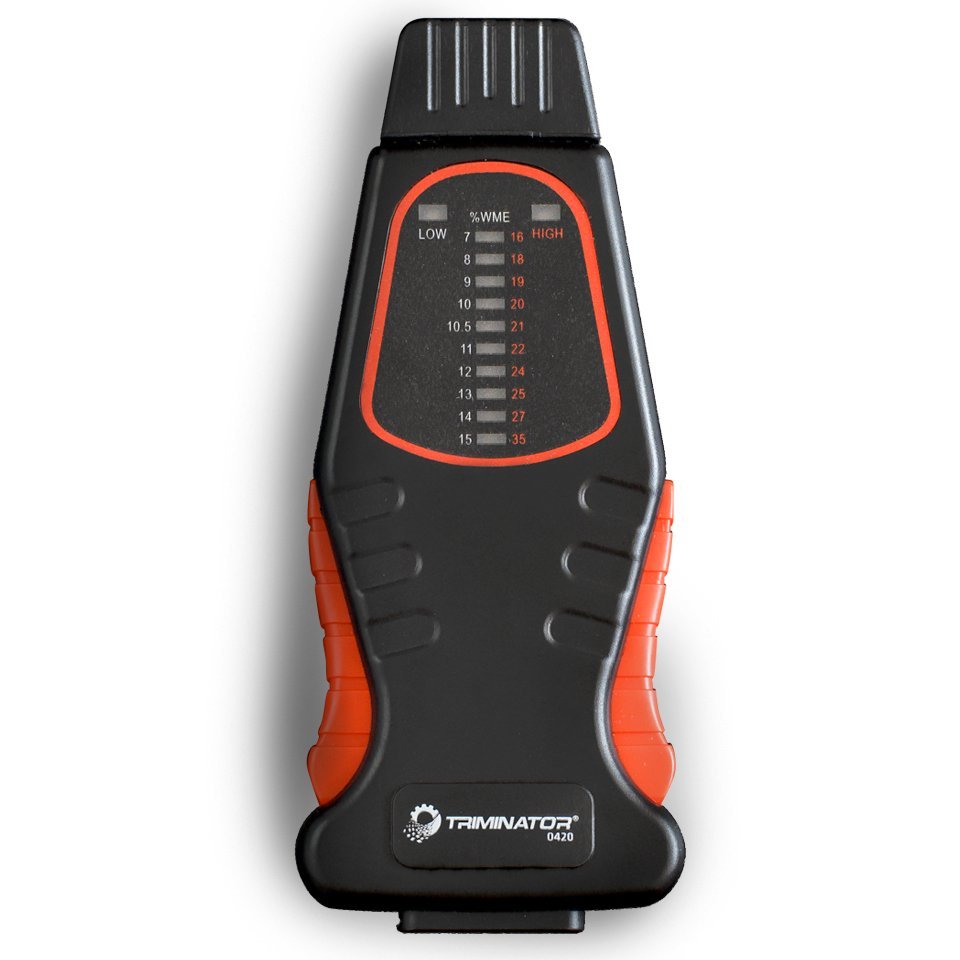The Ultimate Guide to Picking the Right Moisture Meter for Your Requirements
The Ultimate Guide to Picking the Right Moisture Meter for Your Requirements
Blog Article
The Ultimate Overview to Moisture Meters: A Comprehensive Review and Just How They Can Save You Money
In the world of structure upkeep, building, and different sectors, the relevance of accurately measuring moisture degrees can not be overstated. Moisture meters act as vital devices in finding and keeping an eye on moisture content in products, helping in stopping expensive problems and guaranteeing the quality of products. Comprehending the nuances of various types of wetness meters, their applications, and the possible cost-saving benefits they offer can be a game-changer for professionals and services alike. Uncovering just how these devices can not just simplify processes but additionally add to financial savings is a trip worth getting started on.
Types of Moisture Meters
Different kinds of wetness meters are offered for different applications in numerous sectors. One common kind is the pin-type wetness meter, which gauges the electrical resistance in between 2 pins put into a product. This kind appropriates for wood, drywall, and other structure materials. Pinless wetness meters, on the other hand, use electro-magnetic sensor plates to scan a larger area without causing damage to the product's surface area. These meters are suitable for promptly evaluating dampness levels in large areas such as floors and walls.
Moreover, there are also specialized dampness meters created for particular materials like grain, hay, or dirt. These meters supply precise moisture analyses tailored to the unique residential or commercial properties of the material being evaluated. Infrared moisture meters determine the thermal residential properties of a material to determine its moisture content non-invasively, making them valuable for applications where pin or pinless meters might not be ideal. Understanding the different sorts of moisture meters available can aid sectors select the most proper device for their details wetness measurement requirements.

Advantages of Making Use Of Moisture Meters

Additionally, utilizing dampness meters can lead to increased power efficiency. In agricultural setups, wetness meters play a critical duty in optimizing crop yields by making it possible for farmers to keep track of soil wetness degrees and make educated irrigation decisions.
Exactly How to Choose the Right Moisture Meter
Choosing the ideal dampness meter involves taking into consideration vital factors such as material compatibility, dimension array, and calibration accuracy. When choosing a moisture meter, it's important to make certain that the meter is suitable for the certain material you will certainly be screening. Different materials have differing electrical buildings that can impact wetness readings, so choosing a meter made for your material is crucial for accurate results. Additionally, take into consideration the dimension series of the dampness meter. Guarantee that the meter can detect wetness levels within the variety required for your applications. Calibration accuracy is another essential aspect to remember (Moisture Meter). Choose for a moisture meter with trusted calibration to make certain precise and regular analyses. Some meters might need periodic calibration changes, so comprehending the calibration process is crucial. By thoroughly evaluating these variables, you can pick a dampness meter that fulfills your requirements and gives accurate dampness dimensions for your jobs.
Proper Methods for Moisture Meter Usage
To make basics certain exact dampness analyses and make the most of the efficiency of a dampness meter, employing appropriate strategies is essential. When using a pin-type wetness meter, put the pins or probes into the product being tested up until they make complete get in touch with. By following these appropriate strategies, users can rely on their moisture meter to supply reliable moisture levels, aiding in preventing expensive damage or making sure top quality in numerous applications.

Cost Savings Via Moisture Meter Applications
Exactly how can the calculated usage of wetness meters result in substantial cost savings across different sectors? Wetness meters play a vital duty in expense savings by avoiding prospective damages and making certain high quality control in various markets. In the agriculture industry, wetness meters aid in identifying the optimal time for gathering crops, stopping over-drying or excess moisture that can affect the last product's high quality. This specific tracking assists farmers avoid unnecessary losses and optimize their yield.

In addition, in the food handling sector, wetness meters are crucial for checking item high quality and ensuring conformity with security regulations. By precisely measuring wetness content in food products, producers can stop wasting, preserve freshness, and reduce waste, causing considerable expense savings. On the whole, the tactical application of dampness meters is an important financial investment that can cause considerable cost reductions and boosted efficiency across numerous markets.
Verdict
In verdict, moisture meters are useful devices for detecting he has a good point and determining dampness degrees in various materials. By making use of the right dampness meter and following proper techniques, users can properly protect against costly damages triggered by excess moisture.
Wetness meters offer as crucial devices in detecting and checking moisture material in materials, helping in avoiding expensive damages and ensuring the top quality of items. Infrared wetness meters measure the thermal residential or commercial properties of a product to determine its wetness content non-invasively, making them useful for applications where pin or pinless meters might not be ideal.Dampness meters provide vital benefits in accurately examining and keeping an eye on moisture degrees in diverse products and environments. In agricultural setups, wetness meters play a vital function in maximizing crop yields by allowing farmers to keep an eye on soil wetness levels and make notified irrigation choices.In verdict, dampness meters are beneficial tools for finding and measuring dampness degrees in various products.
Report this page